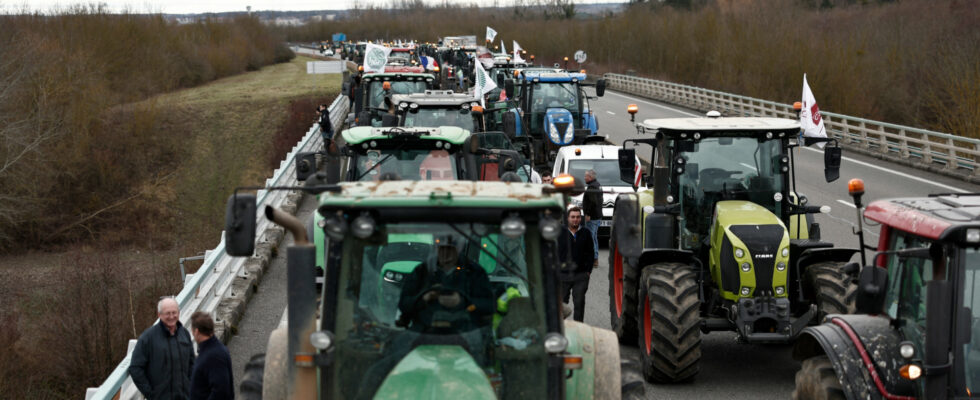The three main Spanish agricultural unions announced on Tuesday that they were joining the angry movement of European farmers, with a series of “mobilizations” across the country over the “coming weeks”.
Fight against “a deregulated market”
“The agricultural sector in Europe and Spain is facing growing frustration and unease”, due in particular to “the stifling bureaucracy generated by European regulations”, explained in a joint press release Asaja, the UPA and the Coag. These three organizations, which do not specify at this stage the exact dates of the demonstrations, say they want a “relaxation” and a “simplification” of the common agricultural policy, as well as an “ambitious action plan” at the level of the ‘EU, Spain’ and Spanish ‘regions’.
European farmers “are fighting against a deregulated market which imports agricultural products from third countries at low prices, which are driving down” the prices of foodstuffs produced “in the EU” and “in Spain”, underline the three organizations, the majority among Spanish farmers. “These extra-community products do not respect European rules” in terms of respect for the environment and are at the origin of “unfair competition”, which “threatens the viability of thousands of agricultural operations in Spain and in Europe” , adds the press release.
Agricultural demonstrations have been increasing for several days in the European Union, and mainly in France, where farmers have been blocking eight highways around the capital since Monday, under the surveillance of police forces mobilized en masse. Faced with this mobilization, the Asaja union assured Monday that it wanted to join the movement. “Spanish farmers have the same problems as French farmers,” its president Pedro Barato then underlined, assuring that “the Spanish countryside” was “fed up with being ignored.”
Spain is, with France and Poland, one of the main European agricultural powers. The country, which produces a large part of the fruit and vegetables consumed within the EU, has however been facing a historic drought for three years, which has weakened many farms and caused harvests to drop, particularly olives and of cereals.
